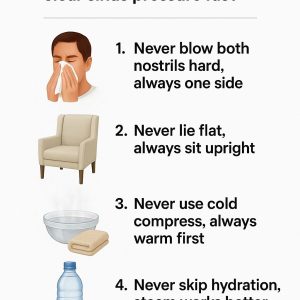
He still knows his route by heart, handles his car like he did at 30… and yet, you can’t shake the feeling. What if driving has become risky for him — or for others?
After age 70, certain natural changes in the body can affect driving safety. What signs should you look for? And how can you bring up such a sensitive topic without hurting his feelings? Here’s everything you need to know to stay behind the wheel… safely.
1. Vision: when the eyes don’t see as well as they used to
Your eyesight is basically the brain’s GPS while driving. And with age, that “screen” can get blurry. Cataracts, glaucoma, macular degeneration… these technical-sounding terms describe common eye issues after 70. The result: road signs are harder to read, contrasts fade, and headlights at night shine like movie spotlights.
What to do:
A yearly visit to the ophthalmologist is essential. Updating a glasses prescription or limiting driving to daytime hours may be enough. But sometimes, it’s best to hang up the keys… and call a taxi for peace of mind.

2. Memory and reflexes: when the brain slows down a little
Forgetting a route? Reacting too slowly to a yellow light? These aren’t always simple lapses in attention. Cognitive aging can cause memory lapses, difficulty making quick decisions, or even confusion on the road.
Good to know:
Alzheimer’s disease and other forms of cognitive decline can reduce driving ability. It’s best to discuss the topic openly with a primary care doctor. Simple tests exist to evaluate reflexes and concentration.
3. Heart and circulation: watch out for sudden episodes of dizziness
A brief dizzy spell… happening while driving? Some cardiovascular issues, such as arrhythmias or high blood pressure, can cause dizziness, shortness of breath, or even fainting.
What helps:
Regular check-ups, a healthy lifestyle, and proper treatments. And most importantly: listening to your body. If you’re not feeling 100%, leave the car in the garage — without guilt.
4. Diabetes: when blood sugar affects your time behind the wheel
We don’t always think about it, but a hypoglycemic episode can cause blurred vision, trouble concentrating… or even loss of consciousness. And it can happen very quickly.
A smart habit:
Always check blood sugar before driving, keep a snack on hand, and let someone know if you feel weak.

5. Reduced mobility: movement is also part of safety
Turning the steering wheel, pressing the pedals, checking blind spots… driving requires fine coordination. Arthritis, joint pain, or conditions like Parkinson’s disease can limit movement and slow reactions.
Helpful options:
Car modifications exist (smoother steering, automatic transmission…), as well as physical therapy to maintain mobility. But if basic movements become truly difficult, it may be time to rethink mobility altogether.
Medications: those side effects that cloud your senses
Drowsiness, dizziness, reduced alertness… some medications — even common ones — can impair driving, especially when combined.
The right habit:
Read the labels (yes, really!) and ask your doctor or pharmacist questions. Sometimes, a simple adjustment makes all the difference.




